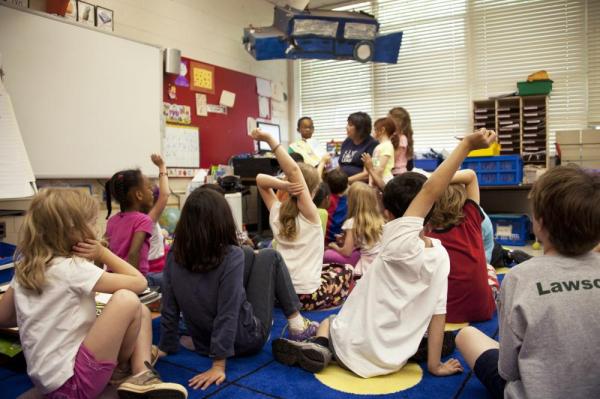GSE Teacher Education Program
The GSE’s Teacher Education Program is designed to develop teachers to be engaged in and committed to excellence, equity, and social justice in their teaching practice. New Jersey is a uniquely diverse and urban state as defined by the following: large numbers of students from historically marginalized linguistic, economic, and cultural backgrounds; high-poverty districts or schools; and population density combined with educational inequality. The GSE Teacher Education Programs aim to develop a diverse generation of teachers prepared according to the New Jersey Professional Standards for Teachers with the skills and dispositions to both teach and advocate for all students, as well as to learn from students and their communities.
Teachers prepared at the GSE will learn to critically analyze the social politics of urban, rural, and suburban schools and use that analysis to advocate for each other, their students, and the families that they serve as they engage in the most effective instructional practices built upon deep knowledge of their students. Rutgers GSE Teacher Candidates benefit from working with some of the best education faculty in the world and gain real-world experience by partnering with carefully selected mentor teachers in districts/schools serving economically, racially, ethnically, and linguistically diverse communities in New Jersey. In order to cultivate the unique set of skills for success in our nation’s increasingly diverse schools, GSE Teacher Candidates do their clinical work in school- and community-based placements in urban partner districts that are part of the GSE - Community School Partnership Network (GSE-CSPN).

The GSE’s urban and social justice teacher education program prepares candidates to:
- Develop meaningful understandings of diverse students and their experiences and communities, and the social, economic, historical and political dimensions of urban settings and schools.
- Effectively teach diverse students, including those from historically marginalized linguistic, cultural and economic backgrounds.
- Identify and disrupt instances and patterns of discrimination and marginalization, and develop their students’ critical and active citizenship capacities.
- Balance constructivist, student-centered approaches with explicit instruction and scaffolding.
- Deeply understand their disciplines, research-based current/best practices in their disciplines, and student learning in their disciplines.
- Be caring, competent, rigorous and reflective practitioners.
Key Features of the Program:
- Two semesters of coursework focused on Urban Education
- Two semesters of coursework focused on Teaching Emerging Bilingual Students
- Three semesters of clinical work in urban GSE-CSPN partner districts
- Content and context-specific support for all clinical internships
- A final capstone course called Students, Communities, and Social Justice that offers real-world context to build experience in the following assumptions that are woven throughout the program:
- Student learning is situated within and actively connected to the school and the broader community. As such, teachers must seek opportunities to learn from and with community members outside of school.
- Public education has the potential to be a site for social change and equity. It is the only institution in the U.S. that is universally available to all students from diverse cultural, linguistic, and economic backgrounds. As such, teachers must see themselves as embedded in a larger community. As members of—perhaps multiple—broader communities, teachers must be able to notice and question their own assumptions and prejudices in order to be able to recognize the potential impact of those assumptions and prejudices on students, communities, and professional practice.
- Teachers have a responsibility to work alongside students, families, and communities to actively participate in creating and perpetuating a just, humane, and democratic society. As such, teachers need to understand how who we are impacts how we teach and how we make alliances with community stakeholders, inside and outside of the school building.
